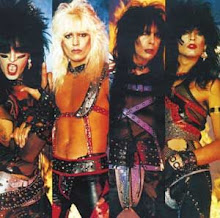Analysis of Symbol- Mildred
By doing absolutely nothing worthwhile with her life, it can be argued that Mildred does the most in the story as far as symbolism of ideas. Her robotic lifestyle with nothing but her television walls seemingly keeping her alive symbolizes what many (if not most) dystopian authors are attempting to prove in their works: when you try to create a "perfect" society with censorship, oppression, and forced equality, what really results is characters just like Mildred, who even if they don't display the same type of behavior in a boring, meaningless life, inside, this is who they are: a person who has nothing to live for besides what the people on TV, or in the society in general, tell them. Mildred is the epitome of a dystopian character's quality of life as a human being.
Reflection-
Considering that it had a rather cliche plot and theme (censorship and burning of books to create a "utopian" society), I thought that the novel was actually fairly well-written. Like Anthem, it was not too long and complex of a story, and it was one that could be read and digested without having to sit and think about it and therefore taking away from the story itself. The use of language and images was excellent (I would cite a few if I still had the book), particularly the ones describing the flames of the burning books. I also liked the element of reality in the story that can be related to our society. Unlike Anthem and We, this society is more like our own and is not as far-fetched and robotic. With The Handmaid's Tale in first place, I would say this book is my second favorite out of the ones we have read in class so far this year.


No comments:
Post a Comment